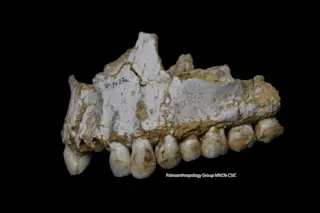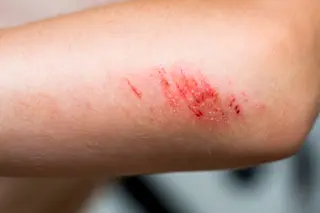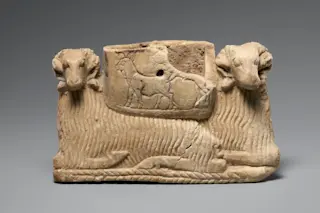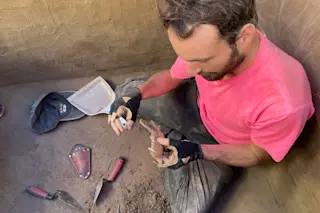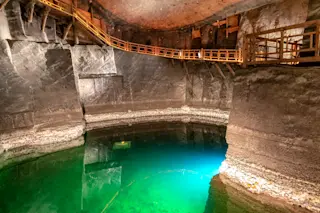The stuff that clings to teeth can tell an interesting story.
On Wednesday, scientists revealed new insights gleaned from dental plaque stuck on the teeth of five Neanderthals from Europe. From a few teeth, scientists learned how Neanderthals used natural medicines and how their diets varied by region. They also learned that modern humans and Neanderthals were swapping spit long ago.
Given time — and negligence — dental plaque will harden into a substance called calculus, which is composed of minerals and the remnants of bacteria and other microorganisms. As calculus layers accumulate, they form a time capsule that stores information about the things we like to cram into our mouths. Archaeologists use ancient calculus to peer back in time and study Neanderthal diets, behavior and health, by examining DNA trapped in these fossil teeth residues.
Neanderthals are the closest extinct relatives of modern humans, and past studies of Neanderthal ...


